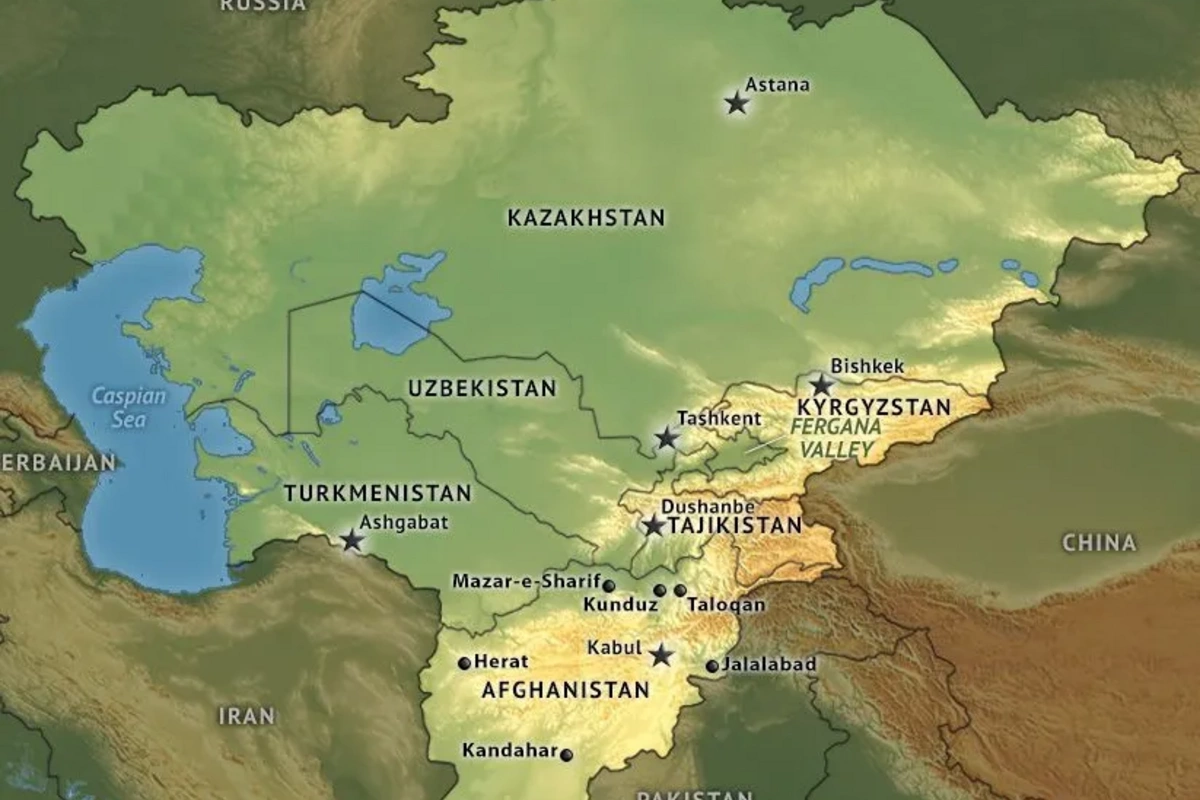
Cabul times
Afghanistan’s strategic location and the changing dynamics in Central Asia have increased the region’s importance in global geopolitics and economics.
Central Asia, with its rich resources and connectivity potential, is becoming a key player in Eurasian trade and energy, influencing regional stability and international relations.
Afghanistan’s position as a crossroads between Central Asia, South Asia, and the Middle East has always made it a strategic focal point.
Its stability or instability directly impacts the entire region, particularly Central Asia.
The security and stability of Afghanistan and Central Asia are intertwined, with the region’s future shaped by the need for regional cooperation and stability to address the challenges.
As overall security situation has improved across Afghanistan, experts believe that the country’s proximity is key to the Afghan economy’s prosperity.
Dr Frederick Starr, a leading American expert and the founding chairman of the Central Asia-Caucasus Institute and Silk Road Studies Program, in his recent interview touched relations within and beyond Central Asia and the future of cooperation within the region, saying that if Afghanistan wants to return to an era of stability and economic development, it must fully integrate with Central Asia.
In his most recent interview with BBC, Dr. Frederick Starr has considered increasing efforts that have been made towards expansion of economic and trade relations between Afghanistan and countries in the region in recent years encouraging, adding that the opening of economic corridors with Central Asia is fundamental to the survival and development of Afghanistan.
Dr. Starr, who has a distinguished academic reputation for his research on the past and present of Central Asia and Afghanistan, insists that a change is underway in Central Asia that will have a profound impact on Afghanistan.
“Central Asian governments are connecting themselves. They are reaching to the conclusion that they will be more powerful and successful economically, politically and security-wise when they give hands to each other and when they are united.
What the member states of the Southeast Asian Association for Regional Cooperation are doing in their region. They are stronger together than they are apart,” he said.
He believes that in this process, the Central Asian countries will create a strong, responsible and modern structure like the countries of Southeast Asia, needing Afghanistan to connect and they will also want Afghanistan, so this way all will be on the same boat.”
He is optimistic that this process has already begun, stressing that Afghanistan’s growing trade with Central Asia is promising, referring to the increase in Afghanistan’s trade with Uzbekistan and Kazakhstan.
“The Central Asian countries are united, which is very important, and they want to open economic corridors through Afghanistan, and the Afghans themselves are very keen to see them open.
The Turkmenistan-Afghanistan-Pakistan-India (TAPI) gas pipeline project, which was considered a failed project ten years ago, is now underway in Afghanistan’s soil, so all this is gradually making Afghanistan not only part of Central Asia, but also a hub for connectivity with all of South and Southeast Asia, including Pakistan and India,” Dr Starr says.
He adds that a fact that has been overlooked internationally is that “the Silk Road is considered as if it was only trade between China, Central Asia and Europe, but the reality is that it was a Europe-Central Asia transport route through Afghanistan to the Indian subcontinent, where India and Pakistan now come, which was much more ancient and faced much less obstacles than the Silk Road, and many goods moved along it, not only physical goods but also cultures and religions.”
Today, all know about the importance of strategic position of Afghanistan and Central Asia.
The Islamic Emirate has already started its efforts to change Afghanistan to an economic hub in the country. In the past over three years, trade and economic relations between Afghanistan and Central Asian countries have increased significantly.
With its economic-oriented policies, the Islamic Emirate will further expand its political, economic and trade relations with Central Asia, which is abundant in natural resources, including oil and gas, are crucial for global energy markets and economic growth.
Source: Cabul Times
Share on social media